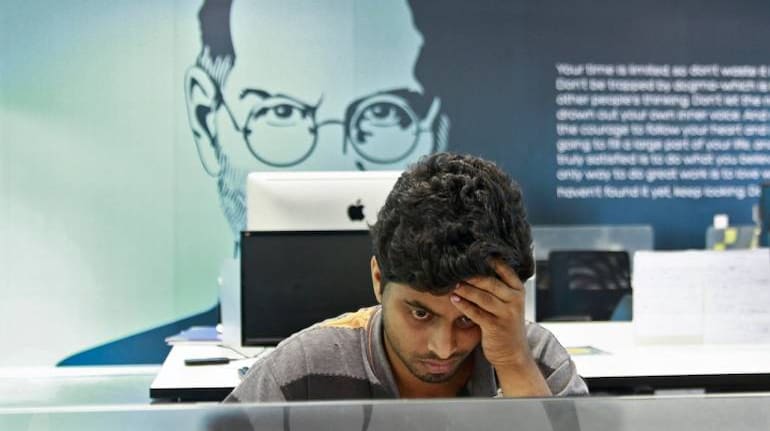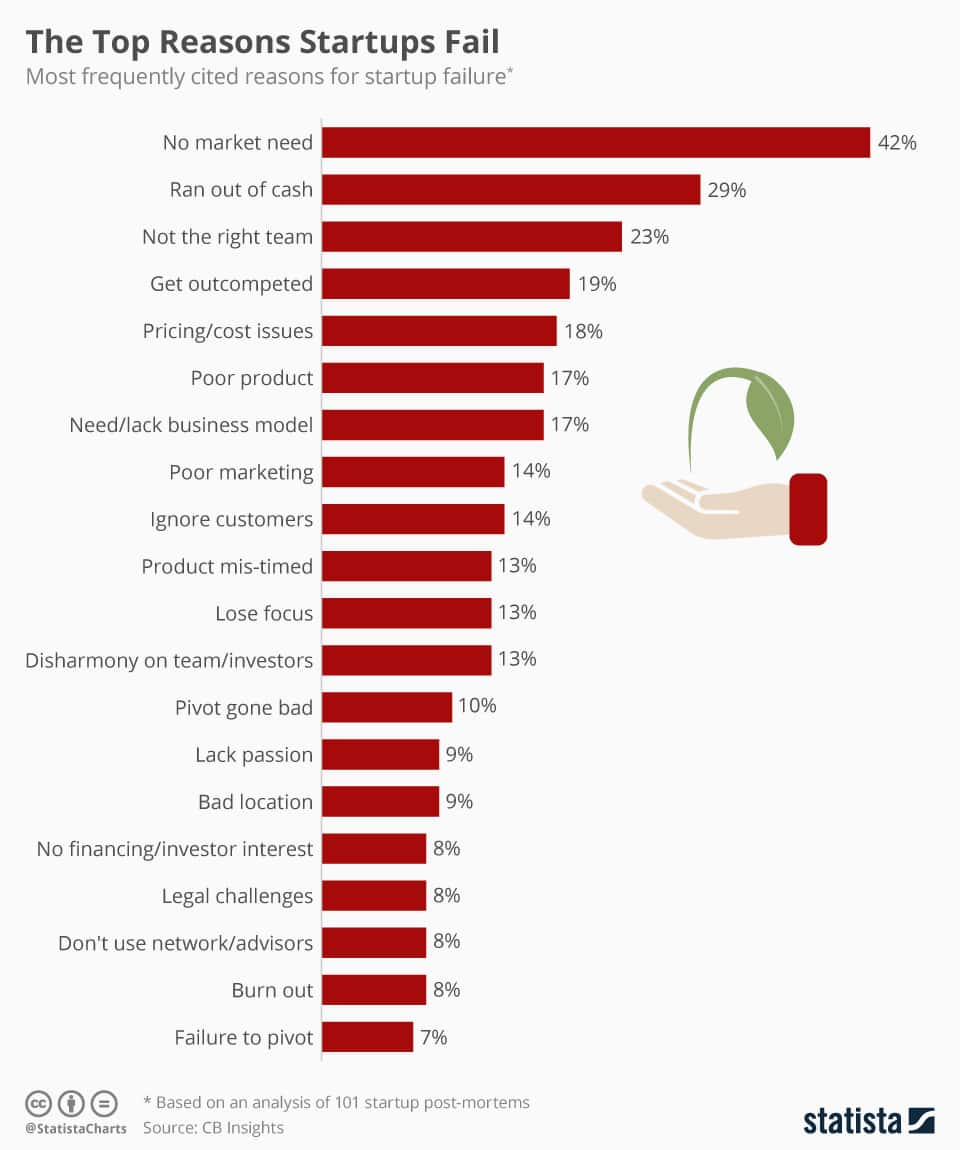



A major share of Indian startups have recently been tumbling into oblivion, and the home-grown larger ones like Ola, Paytm and Flipkart are facing tough competition from global players who have entered and taken a lion’s share of their market.
But looking at the bigger picture: Why are startups, not only in India but around the globe, fumbling?
CB Insights a New York-based technology research company came out with an analysis stating the reasons why startups fail. The list puts up a host of pretty-obvious reasons such as “ran out of cash”, “not the right team”, “pricing issues”, “poor product”, “bad business model” and “poor marketing”.
However, the top reason why startups fail, as per the analysis, was listed as “no market need” having a whopping share of 42 percent.

While this is partially self-evident that if the demand for a product is not there, the company clearly won't succeed, there are several other practical reasons listed on why startups fail.
Some popular ones include lack of sufficient capital (29 percent), assembly of the wrong team for building the product (23 percent) and superior competition (19 percent) as other top reasons.
The CB Insights report goes on to state that there is rarely a single reason responsible for a startup’s downfall.
Also, across all these failures, the reasons are very diverse. Just because a group of entrepreneurs is starting something new, does not mean that the new venture will succeed as well.
Watch: Why are Indian Startups Stumbling?
As per a column by Neil Patel in Forbes, nine out of ten startups will fail.
Patel lists some of the rough characteristics of a successful startup as the product being perfect for the market and the entrepreneur not ignoring anything in his business model.
Smruti Ranjan Sarangi, Associate Professor at IIT Delhi gave his valuable insight on Indian startups and their business model, “It is true that some startups get sold for massive sums, and even some Indian startups are on that list. However, this is not the norm, and nobody should explicitly strive to be the exception. Additionally, startups from India have low visibility, and getting sold to Silicon Valley biggies is not as easy as American startups.”
He adds that there is a big difference in Indian, Israeli and US startups. It says that there will be a much higher return for an entrepreneur in Israel or the US and hence there is little motivation for Indian entrepreneurs in this sense.Watch: Why Is Israel Called A Startup Nation?
India has 3.2 times more startups than Israel, as per iSpirt, an umbrella body of India IT and ITES product companies.
Are startups pre-destining their failure?
The mushrooming of startups and the temptation of returns makes entrepreneurs churn out ideas and take the jump without testing its feasibility.
A lot of startups get truckloads of funding from venture capitalists, despite having a diminishing need, also contribute to the cause.
Some of the biggest startup failures have also been one of the best-funded ones.
Steve Hogan who runs a startup called Tech-Rx, says companies with one person and with no-partners are most likely to fail, as per a report in Fortune.
However, too many cooks also spoil the broth.
K Vaitheeswaran, the founder of one of India's first e-commerce startups Indiaplaza also known as Fabmart - which was shut down in 2013, agrees.
"One of the big mistakes that I made was to put myself in a position where my overall skin in the game, the percentage that I held was less than significant. If an entrepreneur does that, then his or her ability to actually influence any future course of action in his or her own company virtually becomes negligible."
But the bottom line question still remains: Why do good startups fail so suddenly?
Former Nokia CEO Stephen Elop provides the answer:
“The battle of devices has now become a war of ecosystems, where ecosystems include not only the hardware and software of the device but developers, applications, e-commerce, advertising, search, social applications, location-based services, unified communications and many other things. Our competitors aren't taking our market share with devices; they are taking our market share with an entire ecosystem. This means we're going to have to decide how we either build, catalyze or join an ecosystem.”
Despite the negativity surrounding failure of startups, there is one big advantage that startups in India enjoy that is a crucial driver for success: a big domestic market, that the US or Israeli startups do not have.

Discover the latest Business News, Sensex, and Nifty updates. Obtain Personal Finance insights, tax queries, and expert opinions on Moneycontrol or download the Moneycontrol App to stay updated!
Find the best of Al News in one place, specially curated for you every weekend.
Stay on top of the latest tech trends and biggest startup news.